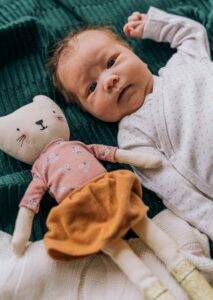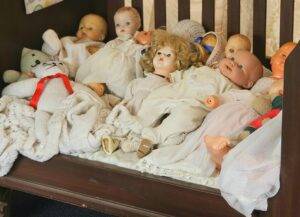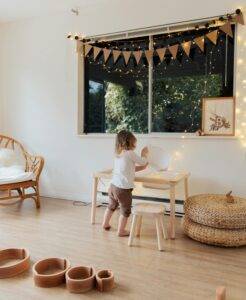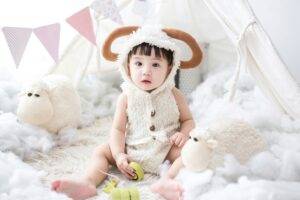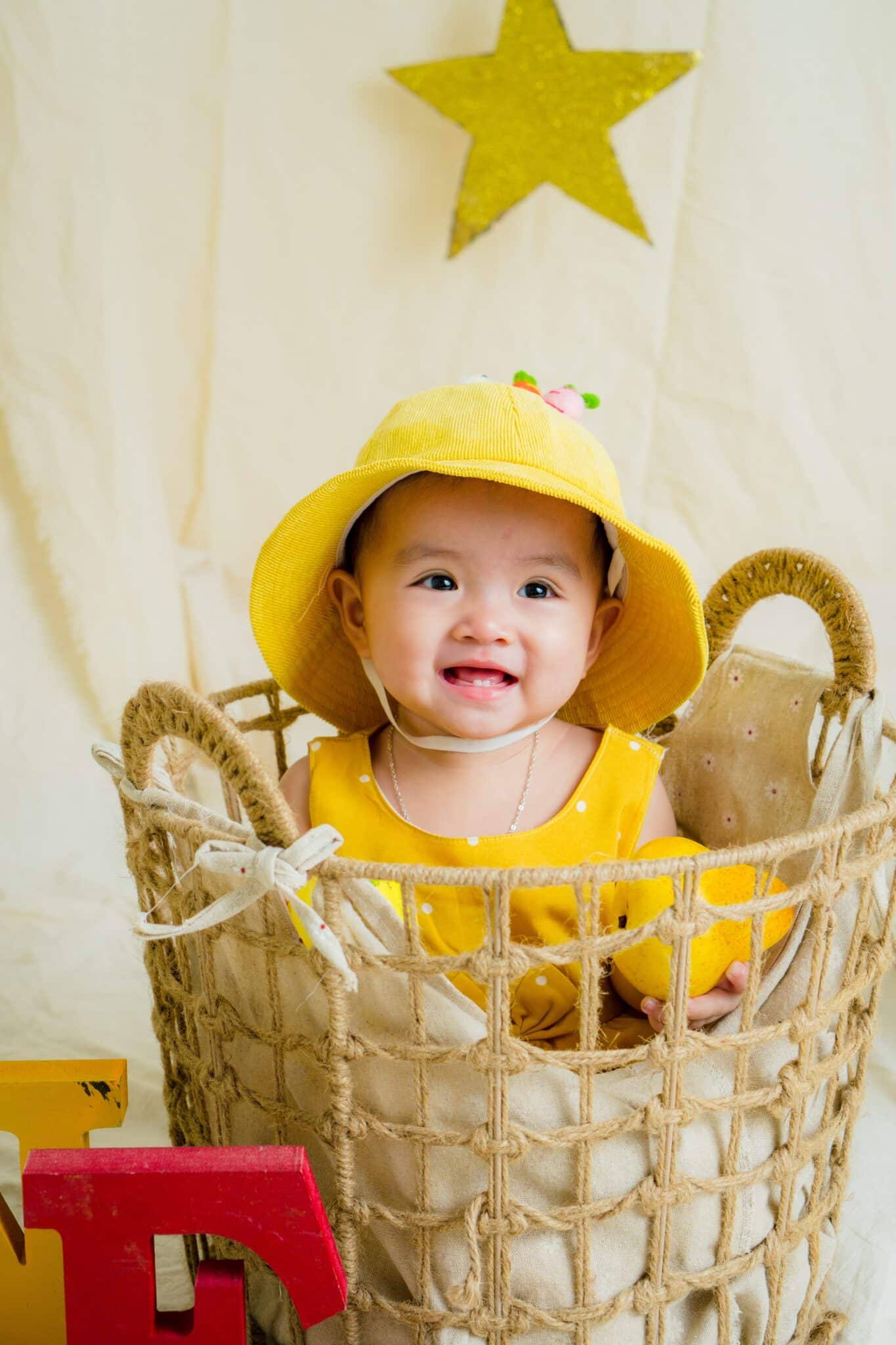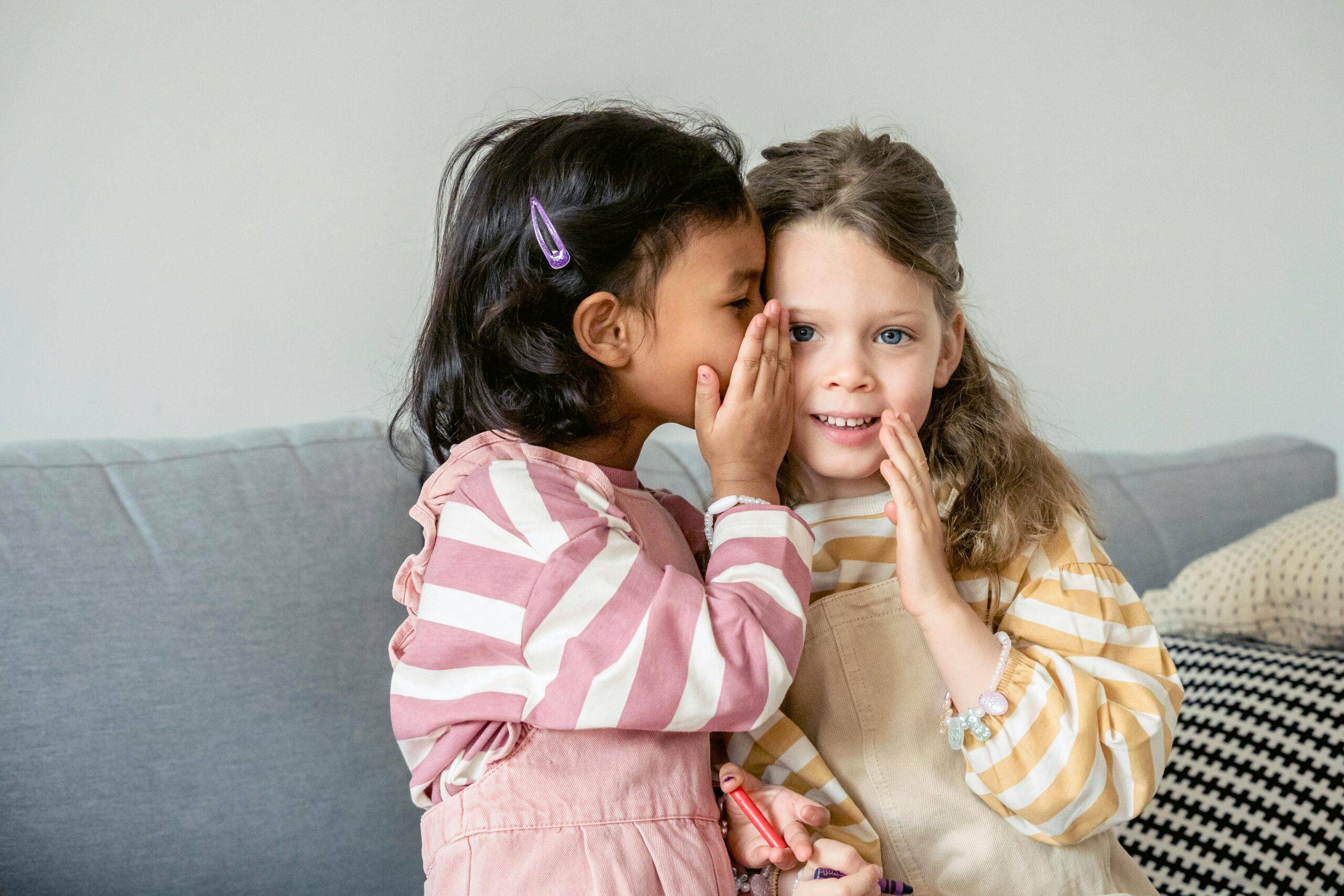Children’s playtime isn’t just about fun and games; it’s a vital part of their growth and development. Among the myriad toys available, newborn baby dolls hold a special place. These dolls stand out for nurturing your child’s emotional, social, and cognitive development.
These dolls, often designed to resemble real infants, offer unique opportunities for learning and growth. Let’s explore why newborn baby dolls are perfect for your child’s development and how they can positively influence your little one’s growth.
Emotional Benefits of Newborn Baby Dolls
1. Developing Empathy and Compassion
This is one of the most profound benefits of newborn baby dolls. When a child pretends to care for a doll, they step into the shoes of a caregiver. They imitate the caregiving behaviors they observe in adults. They feed the doll, bathe and change its diaper, or comfort the doll to put it to sleep.
Through these nurturing activities, children learn to understand and practice empathy by imagining what the doll needs and responding to those needs. This practice helps them become more sensitive to the needs and feelings of people around them, fostering a compassionate attitude.
This sets the foundation for healthy social interactions throughout life.
2. Enhancing Emotional Regulation
Playing with newborn baby dolls allows children to express and manage emotions effectively. When a child pretends to soothe a crying doll or puts it to sleep, they’re practicing emotional regulation skills.
Children project their feelings onto their dolls, using them as a medium to express emotions they might not fully understand or know how to handle. For instance, a child might soothe a “crying” doll, mirroring how they wish to be comforted when upset.
This role-playing helps children learn to identify and manage their emotions, leading to better emotional health and resilience. These activities teach them to recognize emotional cues and respond appropriately, leading to better emotional health and coping mechanisms in real-life situations.
This early practice of managing emotions improves emotional stability and resilience as they grow.
3. Building Self-Esteem and Confidence
Newborn baby dolls boost a child’s self-esteem and confidence. When children take on caring for their dolls, they experience a sense of accomplishment and pride. Successfully feeding, dressing, or comforting their “baby” gives a sense of competence. and mastery.
This positive reinforcement builds their self-esteem and encourages them to take on new challenges, knowing they have the skills and capability to succeed.
Social Benefits of Newborn Baby Dolls
4. Encouraging Cooperative Play
Children playing with these dolls learn to share, take turns, and work collaboratively. This type of play helps them develop essential social skills such as communication, negotiation, and teamwork. Cooperative play with dolls strengthens friendship values by working together towards a common goal.
5. Enhancing Language Development
Children often engage in conversations with their dolls, which enhances their vocabulary and verbal skills. They practice constructing sentences, using new words, and engaging in social dialogues. This verbal interaction improves their language skills and boosts their confidence in expressing themselves.
Moreover, playing with dolls in a group setting encourages them to communicate and interact with peers, further enhancing their language abilities.
6. Fostering Imaginative Play
This is crucial for the child’s cognitive development. Children create scenarios and stories around their dolls, encouraging creativity and problem-solving skills. Imaginative play allows children to explore different roles and situations, helping them understand the world around them.
This type of play stimulates their imagination, encouraging them to think creatively and come up with innovative solutions to problems.
Cognitive Benefits of Newborn Baby Dolls
7. Improving Fine Motor Skills
Handling newborn baby dolls involves activities that help develop fine motor skills. Dressing the doll, feeding it, and changing its clothes require precise hand dexterity. These activities help children refine their hand-eye coordination, essential for writing, buttoning clothes, and using utensils.
Improved fine motor skills also contribute to better hand strength and control, which are important for everyday activities.
8. Enhancing Problem-Solving Abilities
Playing with newborn baby dolls often involves overcoming small challenges, such as figuring out how to dress the doll or calm it when it’s “crying.” These problem-solving activities stimulate cognitive development and enhance critical thinking skills.
Children learn to approach problems methodically, think through possible solutions, and choose the best action. This practice in problem-solving can translate to better analytical and reasoning skills in academic and real-life situations.
9. Promoting Responsibility and Independence
Children learn to manage tasks like feeding and putting the doll to sleep. This practice fosters a sense of responsibility and helps children become more independent in their daily lives. Caring for a doll requires planning and organization, which are important life skills.
By practicing these skills with their dolls, children learn to take charge of their routines and responsibilities, preparing them for more complex tasks as they grow.
Psychological and Therapeutic Benefits
10. Providing Comfort and Security
Newborn baby dolls provide comfort and security for children, especially in stressful or unfamiliar situations. Holding or hugging a doll is soothing and provides stability. This comfort is particularly beneficial for children experiencing anxiety, adjusting to new environments, or dealing with difficult emotions.
The presence of a familiar and comforting object such as a doll, helps children feel more secure and calm in challenging situations.
11. Therapeutic Uses in Child Development
Therapists use newborn baby dolls in play therapy to help children express their emotions and experiences. The dolls serve as a medium for children to act out their feelings and gain insights into their behavior and emotions. This therapeutic use of dolls aids in resolving emotional and psychological issues.
Children explore and process their emotions in a safe and supportive environment by playing with dolls, leading to better emotional and mental health outcomes.
Additional Benefits of Newborn Baby Dolls
12. Cultural Awareness and Diversity
Newborn baby dolls can also be a tool for teaching cultural awareness and diversity. By providing dolls of different ethnicities and backgrounds, you help your child understand and appreciate the diversity in the world. This exposure fosters an inclusive mindset and teaches children to respect and celebrate differences.
You also introduce dolls with various cultural outfits and traditions, enriching your child’s knowledge and appreciation of different cultures.
13. Encouraging Gentle Behavior
Children learn to handle their dolls, translating into more tender interactions with real babies and peers. This practice helps instill a sense of kindness and gentleness, important traits for developing positive relationships. You reinforce this behavior by praising your child when they’re gentle with their doll and explaining its importance.
14. Supporting Transition to Siblinghood
For children expecting a new sibling, newborn baby dolls are helpful. They provide a way for children to practice and understand the changes that come with having a new baby in the family. By role-playing with their doll, they get used to caring for a baby and what it means to be an older sibling.
This preparation eases the transition and reduces the anxiety or jealousy they might feel when the new baby arrives. You also involve your child in preparing for the new sibling by helping them choose items for their doll, mimicking the preparation for the real baby.
Practical Tips for Choosing the Right Newborn Baby Doll
Age-Appropriate Dolls: Opt for soft-bodied dolls that are easy to hold and cuddle for younger children. Realistic dolls with additional features like feeding bottles, pacifiers, and interactive elements are introduced for older children. Age-appropriate dolls ensure children safely and effectively engage with their toys, maximizing the developmental benefits.
Safety Considerations: Ensure that the doll is made of non-toxic materials and doesn’t have small parts that could pose a choking hazard. Always check for safety certifications and read reviews before making a purchase. Choosing a safe and well-made doll ensures that children play without the risk of injury or exposure to harmful substances.
Durability and Maintenance: Choose a newborn baby doll that’s durable and easy to clean. Children can be rough with toys, so a sturdy doll that withstands playtime is a wise investment. Additionally, dolls that are machine washable or come with easy-to-clean clothes are ideal for maintaining hygiene.
Durable and easy-to-maintain dolls ensure that children enjoy their toys for a long time without the hassle of frequent replacements or complicated cleaning routines.
Incorporating Newborn Baby Dolls into Daily Play
Setting a Play Area
Create a dedicated play area for your child’s newborn baby doll to enhance the play experience. This area includes doll furniture, clothes, and accessories to create a realistic and engaging environment for play.
Having a designated space for doll play encourages consistent and immersive play sessions, allowing children to engage with their dolls and explore various scenarios.
Encouraging Role-Playing Scenarios
This could include feeding the doll, taking it for a walk, or putting it to sleep. Role-playing helps children understand daily routines and develop organizational skills. It also provides opportunities for practicing empathy, problem-solving, and communication skills in a fun and engaging way.
Joining in the Play
Parents join in the play to make it more interactive and educational. You can guide your child through different scenarios and teach them new caregiving skills. This shared playtime also strengthens the parent-child bond and creates lasting memories.
Playing with dolls is a great way to connect with your child, understand their world better, and support their developmental journey.
The Long-Term Impact of Playing with Newborn Baby Dolls
Lifelong Social Skills: Empathy, cooperation, and communication are foundational for building healthy relationships. Children who learn to care for their dolls and interact with others in a nurturing way are likely to grow up with strong social skills that benefit them in personal and professional relationships.
Enhanced Cognitive Abilities: The cognitive skills honed through doll play, such as problem-solving, critical thinking, and fine motor skills, are essential for academic success and everyday tasks. Children who engage in imaginative and interactive play with dolls perform better in school and are more adept at handling complex tasks.
These enhanced cognitive abilities pave the way for future achievements and lifelong learning.
Emotional Resilience: Developing emotional regulation and resilience through doll play has long-term benefits for mental health. Children who learn to manage their emotions and cope with stress through play are better equipped to handle challenges and setbacks in life. This emotional resilience leads to greater overall well-being and a more positive outlook.
Real-Life Success Stories
Testimonials from Parents
Many parents have witnessed the positive impact of newborn baby dolls on their children’s development. For example, Sarah, a mother of two, shared how her daughter’s emotional intelligence improved after she started playing with a newborn baby doll.
“She became more empathetic and understanding towards others. It was amazing to see how caring she was with her doll, and it translated to how she interacted with her friends and family,” Sarah explained.
Insights from Child Development Experts
Child development experts also advocate for newborn baby dolls in early childhood education. Dr. Jane Williams, a child psychologist, emphasizes the importance of role-playing in developing empathy and social skills. “When children role-play with dolls, they’re learning essential life skills.
It’s a powerful way to teach them about emotions, responsibility, and social interactions,” Dr. Williams noted.
Marvel at Your Child’s Development with Their Newborn Baby Dolls
Newborn baby dolls are more than just toys; they’re powerful tools for your child’s development. By choosing the right doll and incorporating it into daily play, you support your child’s holistic development, providing them with a companion that fosters learning and growth.
For more insights into child development and the benefits of play, check out these blog posts on Omegapediatrics.com:
- 14 Ways to Nurture a Growth Mindset in Children
- Coping Strategies for Kids: How to Support Emotional Development
By understanding and utilizing the potential of newborn baby dolls, you contribute significantly to your child’s healthy development and ensure they grow up with essential skills for their future. These dolls are not just a source of entertainment but a valuable educational tool that has a lasting positive impact on your child’s life.

